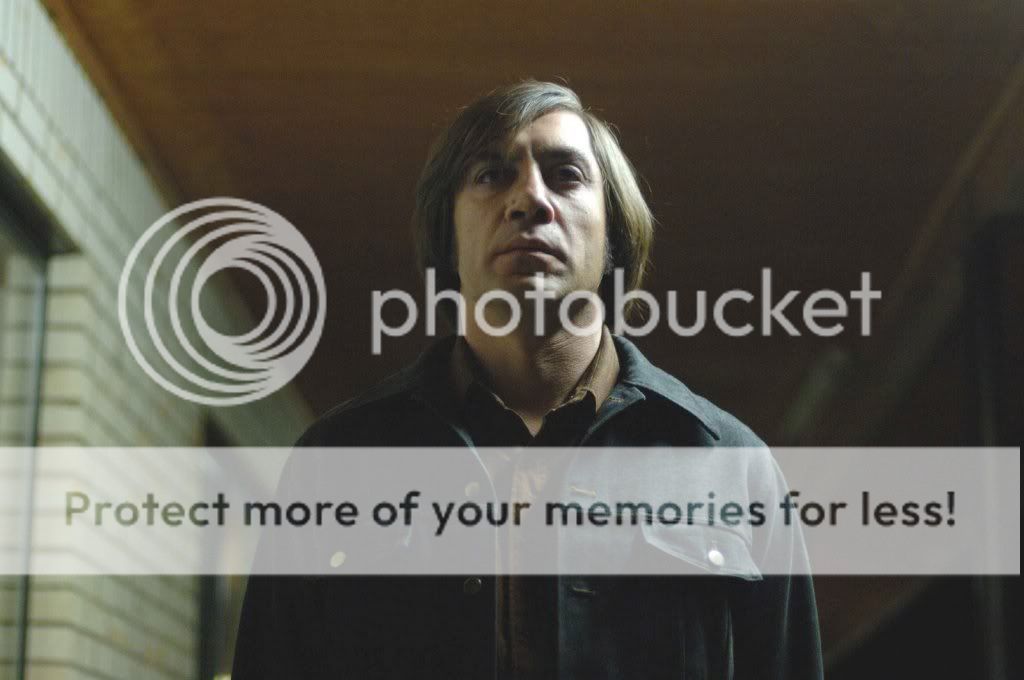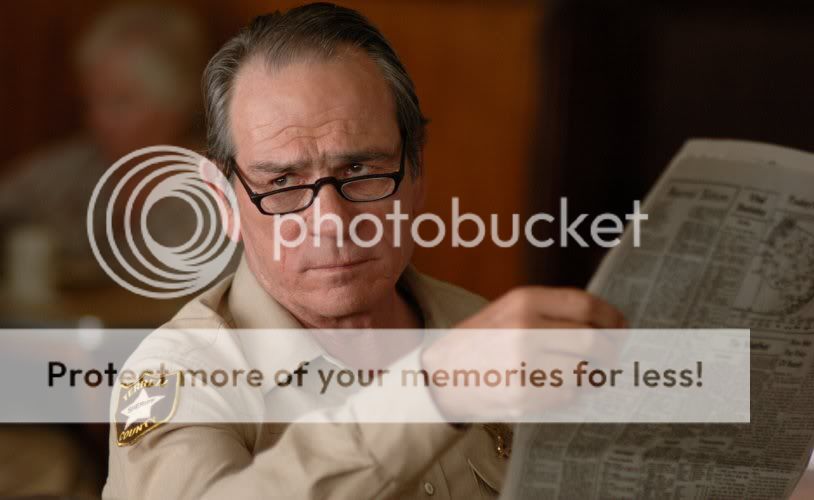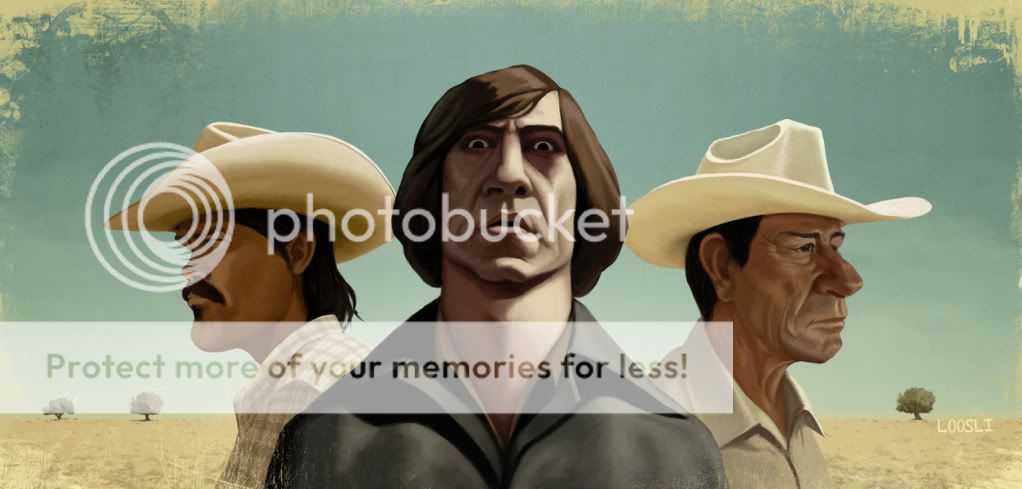"There’s this boy I sent to the electric chair at Huntsville here a while back. My arrest and my testimony. He killed a fourteen year old girl. Papers said it was a crime of passion, but he told me there wasn’t any passion to it. Told me he’d planned to kill somebody for as long as he could remember. Said if they turned him out he’d do it again. Said he knew he was going to hell. Be there in about 15 minutes. I don’t know what to make of that. I sure do don’t."
That’s the film’s opening voiceover narration, spoken by the tired sheriff of a Texas-Mexico border town, Sheriff Ed Tom Bell (Tommy Lee Jones). The sheriff believes that in his life of work one must always be prepared to put his life on the line, but he doesn’t want to confront whatever it is he cannot comprehend. That’s his philosophy - a sound lesson - and he can easily be interpreted as the film’s protagonist.
No Country for Old Men tells the tale of a simple man, Llewellyn Moss (Josh Brolin) who stumbles upon a drug deal gone bad. He finds the blood money belonging to the two murdered factions in the middle of desert and decides to keep it for himself.

Enter Anton Chigurh (Javier Bardem, who’d won the Oscar for his performance in this film), an assassin hired to retrieve the money. Chigurh sports a mushroom hair-cut and wears black clothes; he is tall and pale, and sometimes lets out a creepy smile. His is a personality that one cannot comprehend, for Chigurh is literally evil incarnate. When he speaks he does so without suggestion, always meaning exactly what he says and he carries with him a very unusual weapon, a makeshift cattle prod: a hose is connected to a canister of compressed air on one end and on the other end is a metal piece that protrudes a 6 inch spike and then retracts it. It is normally used on cattle but Chigurh uses it on fellow human beings.
Chigurh is a murderer who's methodical but his actions are not predetermined, therefore Chigurh is not a psychopath but a compulsive killer. At the start of the film, while choking a cop with his own handcuffs and slitting the cop’s throat in the process, he showcases an emotion like that of sexual gratification; he is wide-eyed and ecstatic. He then walks over to the bathroom and washes his hands and bloodied wrists. It’s brutal in nature and tough to watch but we take note that Chigurh is basically a homicidal fetishist.

Llewellyn, Chigurh, and the sheriff never meet throughout the entirety of the film. Llewellyn comes across Chigurh a couple of times in exquisitely shot, extremely tense, lightning quick shoot-outs but never actually sees him in person because in both instances he’s fleeing for his life; that and the directors never show the attacker. The sheriff wants to find Llewellyn and to protect him from Chigurh and the three are always on a merry chase throughout.
This is the first film in which the Coen Brothers use realism as their filming style. The scenes with the shootings are bloody and somewhat realistically gory and the film has no musical soundtrack at all, which allows us to immerse ourselves in its atmosphere and to insert own subconscious to the atmosphere and situations; in short we feel like we’re there with Llewellyn, Chigurh, and the sheriff. The feeling of hopelessness grows deeper within us because the Coens use constant shots of barren, searing landscapes.
If Llewellyn had been city born and bred and had come across the money in a city like Austin or New York, then this film would be a much more action packed and brainless film. What this film offers is a huge visual metaphor of hopelessness in the face of an unstoppable force and Llewellyn tries to become an immovable object, but he is a mortal man and Chigurh and is the personification of evil.
The moral is simple: know what you’re doing or whom you’re dealing with. If one sees a shotgun around the corner then it’s best to keep one’s distance from the gun and if one sees a rifle then it’s best to stay completely out of site. Llewellyn tries to hide from Chigurh and outrun him but he is never able to kill him. The best advice that Llewellyn should follow would be to avoid a fight or a war altogether; heck, he could simply give up the money. But it’s not in his nature to do so and when Chigurh is metaphorically described to the audience we understand that Llewellyn will grow into a tragic figure. And the sheriff always tries to protect Llewellyn instead of fighting against Chigurh because he’s the wisest of them all.

Josh Brolin and Javier Bardem’s performances are career defining; here, the actors perform their characters with realism. We know that we are watching a film but we feel that we are watching people and not actors. And Tommy Lee Jones can never give a bad performance.
The shot compositions are terrific and the Coens are the types of directors that don’t waste a single shot. Every shot in the film is meaningful and the film can be studied shot by shot to verify my claim. I should know because I have an excellent comprehension of shot compositions and because I’d watched this film several times since its initial theatrical release.
This is a perfect movie in every way. The performances are all excellent, the direction and cinematography are masterful, and the editing and the use of [atmospheric] sound effects raises the hairs at the back of one’s neck. It’s also a great exercise in shooting a film with a moderate budget. Fargo (1996) is also a perfect film but was only the beginning. No Country for Old Men is a longer, bigger, meaner, and deeper philosophical masterpiece and is therefore, easily one of the greatest films of the past decade.


No comments:
Post a Comment